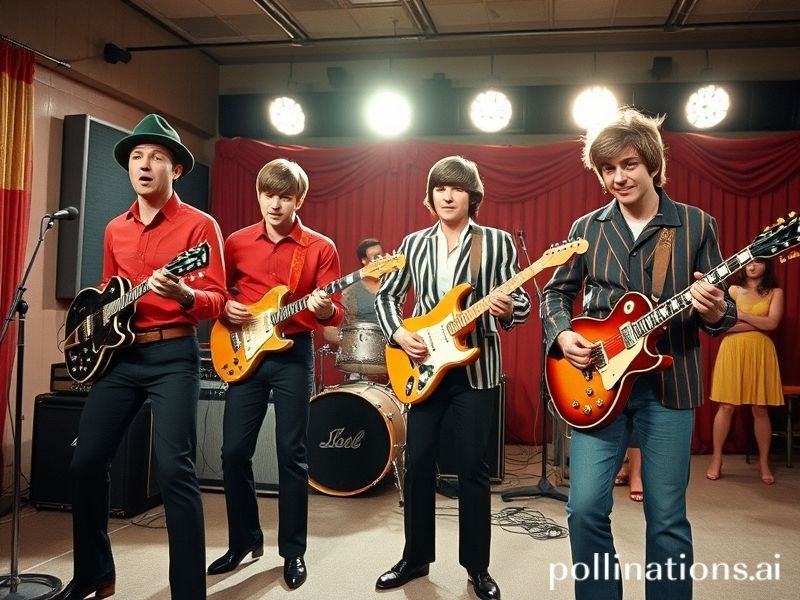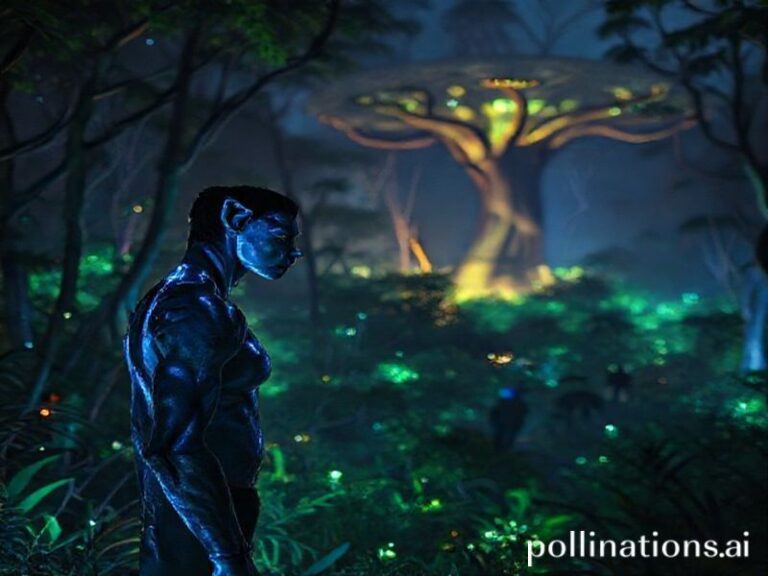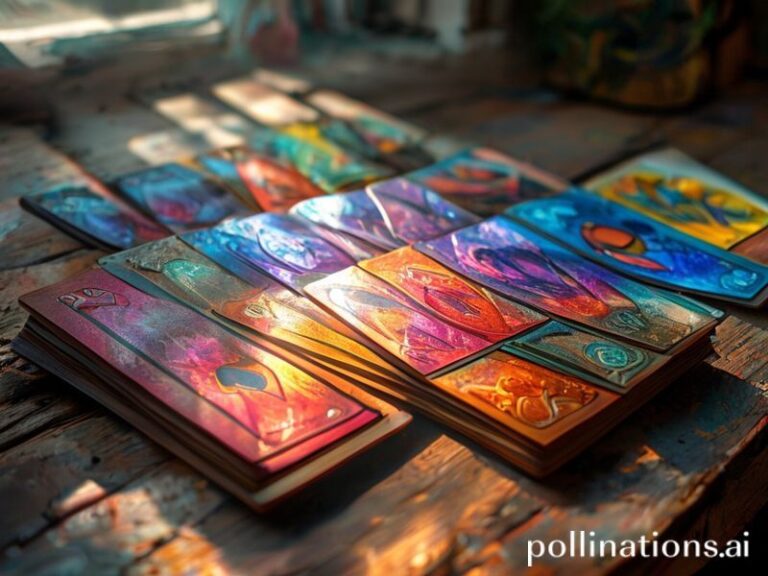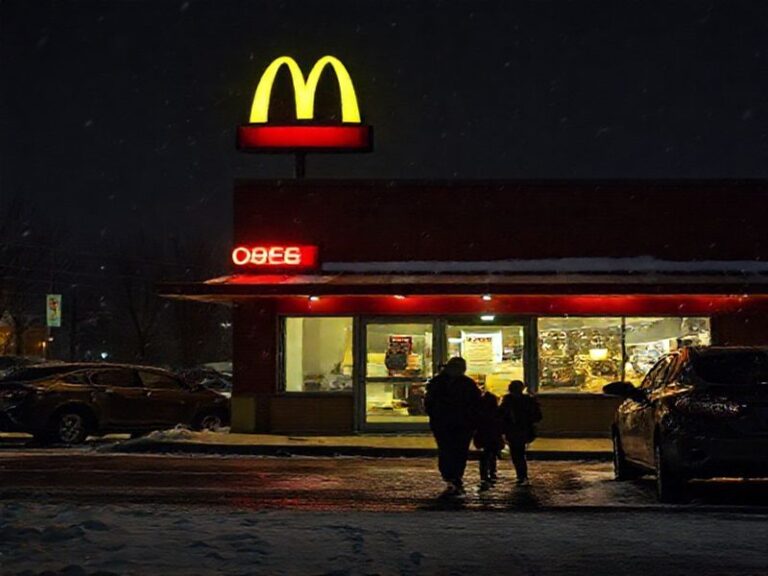The Monkees: How Four Fake Pop Stars Accidentally Became the Cold War’s Catchiest Weapon
The Monkees: How Four Fake Americans Accidentally Invented Global Soft Power Before the Pentagon Could Spell “K-Pop”
By our man in the cheap seats, Geneva—where even the statues look bored.
In 1966, while the Cold War was busy stockpiling canned paranoia, a television producer in Los Angeles glued four vaguely musical actors together, named them after a German word for “funny little primate,” and shipped the package worldwide. The Monkees were not a band; they were a multinational experiment in whether democracy could outsource its rhythm section. Half a century later, the world is still humming the jingle and pretending it meant something.
From Jakarta jukeboxes to Bosnian bar mitzvahs, “I’m a Believer” became the Esperanto of late-stage capitalism: a three-minute pledge of allegiance to disposable joy. Soviet teenagers risked Siberian summers for smuggled cassettes; East German border guards tapped their boots to “Last Train to Clarksville” while strip-searching teenagers for contraband Levi’s. Nobody noticed the irony that a prefab pop group was teaching captive audiences how to smile on command. The Monkees were the first viral export whose side effects included both cavities and dissent.
Fast-forward to the algorithmic present, and the Monkees’ ghost haunts every multinational boardroom that thinks “soft power” is a new flavor of vape juice. BTS, Bad Bunny, and a thousand TikTok micro-stars all owe royalties—spiritual, if not legal—to four guys who once lip-synced their way through a carwash in a script written by a committee that included a future Watergate burglar. The lesson is eternal: if you can’t win hearts with ideology, rent them by the half-hour, plus syndication rights.
Not that the lads themselves signed up for geopolitical significance. Davy Jones just wanted to be bigger than the Beatles; Mickey Dolenz wanted a steady paycheck between draft notices. Mike Nesmith wore a wool hat to hide the fact that his mother invented Liquid Paper, the original “delete your mistakes” startup. Meanwhile, Peter Tork played the bass like a man who’d read the instructions in the wrong language. Together they accidentally built the template for modern nation-branding: look harmless, sound harmless, vacuum up foreign currency like a cheerful Dyson.
Their 1967 world tour was less a concert series than a low-budget NATO exercise. In Japan, 12,000 fans were hospitalized for what doctors called “acute melody exposure.” In Australia, the prime minister declared them a “national security risk” after 200 teenagers tried to sail to America in a homemade raft named Monkeemania. In the UK, the Queen Mother reportedly asked if “Daydream Believer” was about the royal budget. Diplomats filed cables labeled “CONFIDENTIAL: Hysteria Increasing.” The State Department took notes; the Kremlin took aspirin.
And yet, for all the manufactured origins, the songs aged like cheap wine in a chipped canteen—surprisingly drinkable if you ignore the aftertaste of plastic. When the Berlin Wall fell, East German radio stations queued up “Pleasant Valley Sunday” as if the lyrics about suburban malaise were a prophecy about West German Ikea parking lots. In post-apartheid South Africa, wedding DJs discovered that “(Theme From) The Monkees” was the only tune both sides knew by heart. Somewhere, a marketing executive added “universal sing-along” to his PowerPoint and billed overtime.
Today, as streaming platforms auction nostalgia to the highest algorithm, the Monkees survive as the perfect metaphor for our curated age: authentic inauthenticity, rebellion you can hum in an elevator. Their reunion tours—featuring whoever is still alive and ambulatory—draw multigenerational crowds clutching vinyl and antidepressants in equal measure. The merchandise booth sells T-shirts that read “Manufactured but Self-Aware,” a slogan that could double as the mission statement of any 21st-century superpower.
So raise a lukewarm cosmopolitan to the prefab four, those accidental diplomats in paisley. They proved you don’t need bombs to occupy a country—just a catchy chorus and a distribution deal. And if the world ends in a nuclear duet, rest assured the cockroaches will still be humming “Hey hey, we’re the Monkees,” wondering what the hell we were so upset about.







